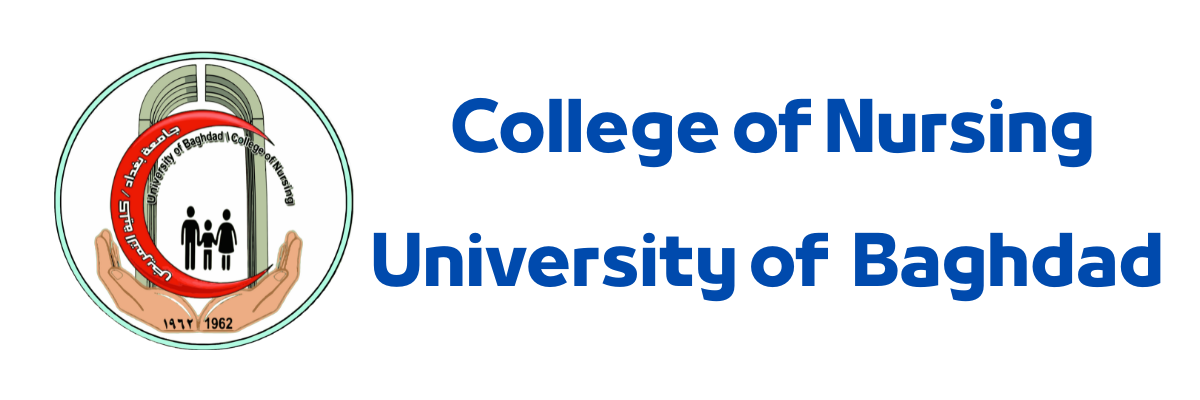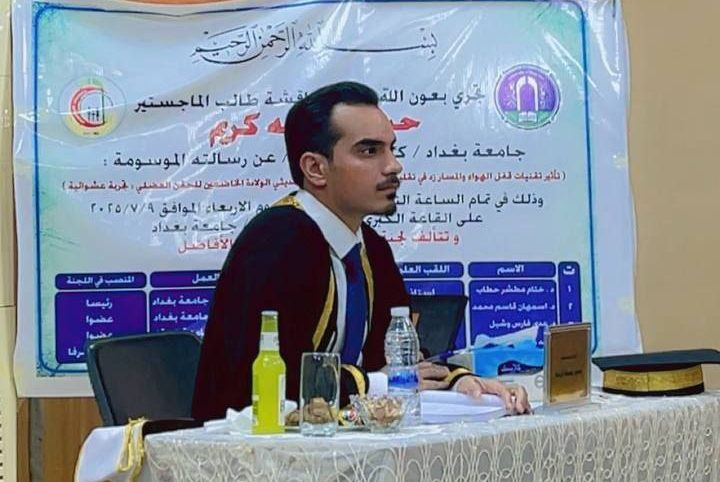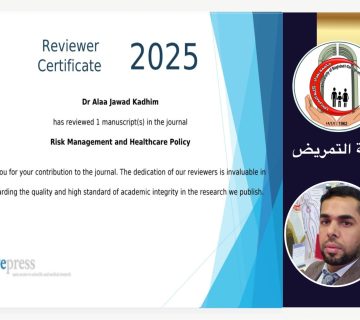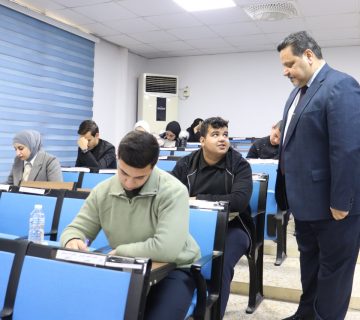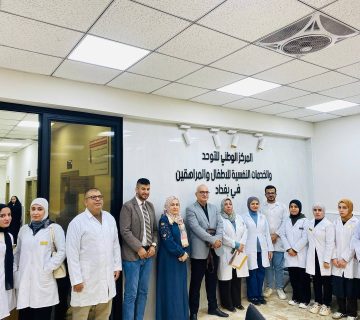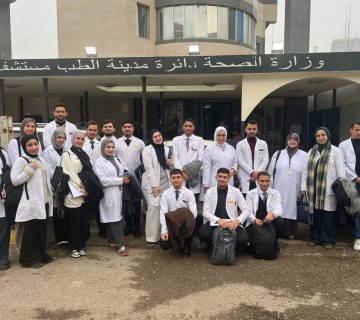The College of Nursing at the University of Baghdad successfully discussed a master’s thesis entitled “The Effect of Air Lock and Z-Trajectory Techniques in Reducing Pain and Drug Leakage among Newborns Undergoing Intramuscular Injection: A Randomized Controlled Trial.” This thesis was presented by researcher Haider Juma Karim, under the supervision of Assistant Professor Dr. Zaid Wahid Ajel, in the Skills Hall at the college.
The study aimed to evaluate the effectiveness of using the “Z-trajectory” and “air lock” techniques in reducing pain levels and medication leakage in newborns receiving intramuscular injections. The results showed that these two techniques are highly effective non-pharmacological methods that can be used to reduce pain and drug leakage associated with vitamin K injections and hepatitis B vaccinations in this sensitive age group.
Based on the tangible results, the study recommended that the Z-trajectory and air lock techniques be incorporated as an essential part of standard intramuscular injection procedures in neonatal units. This application would greatly contribute to improving the healthcare experience for newborns by reducing their pain and medication leakage, thereby enhancing their comfort and safety. It was awarded an “excellent” rating.
This research contributes to a key goal of this objective, which is to ensure healthy lives and promote well-being for all at all ages. It also reflects the importance of scientific research in developing sustainable healthcare practices that benefit society as a whole.This pioneering study is directly aligned with the third Sustainable Development Goal, “Good Health and Well-being.” By focusing on improving the quality of healthcare for newborns and reducing their pain and suffering.

